What if there were universal lucky numbers that applied to everyone? Imagine a world where a single number could bring prosperity, happiness, and abundance to every individual. The concept of lucky numbers has fascinated humanity for centuries, with ancient cultures and modern societies placing great importance on specific numerical values. But is there any scientific explanation for the power of these numbers, or is it all just superstition and coincidence? In this article, we will explore the historical beliefs surrounding lucky numbers, delve into the scientific perspectives on their significance, discuss whether universal lucky numbers truly exist, and even explore the fascinating world of numerology as a tool for finding your own personal lucky number. Get ready to unlock the mysteries of luck and numbers in a way you never thought possible!
Contents
- The Concept of Lucky Numbers
- Historical Beliefs in Lucky Numbers
- Scientific Explanation for Lucky Numbers
- Do Universal Lucky Numbers Exist?
- Using Numerology to Find Your Lucky Number
- Personal Stories of Lucky Numbers
- Conclusion
-
Frequently Asked Questions
- Why do people believe in lucky numbers?
- Can lucky numbers actually influence outcomes?
- Are lucky numbers the same across different cultures?
- Do lucky numbers change over time?
- Can someone have multiple lucky numbers?
- Does everyone have a specific lucky number?
- Is there a difference between lucky numbers and lucky charms?
- Can lucky numbers bring bad luck?
- What is the significance of repeating numbers?
- Can someone change their lucky number?
- References
-
Frequently Asked Questions
- 1. Are there specific lucky numbers that have universal significance?
- 2. Can lucky numbers bring good fortune to everyone?
- 3. Are lucky numbers based on any scientific explanations?
- 4. Do ancient cultures have specific lucky numbers?
- 5. How do modern societies view lucky numbers?
- 6. Can everyone have personalized luck based on their own lucky numbers?
- 7. How can numerology help in determining one’s lucky number?
- 8. What is a life path number?
- 9. How can one interpret the results of their life path number calculation?
- 10. Do you have any interesting stories about lucky numbers?
- References
- Read More
The Concept of Lucky Numbers
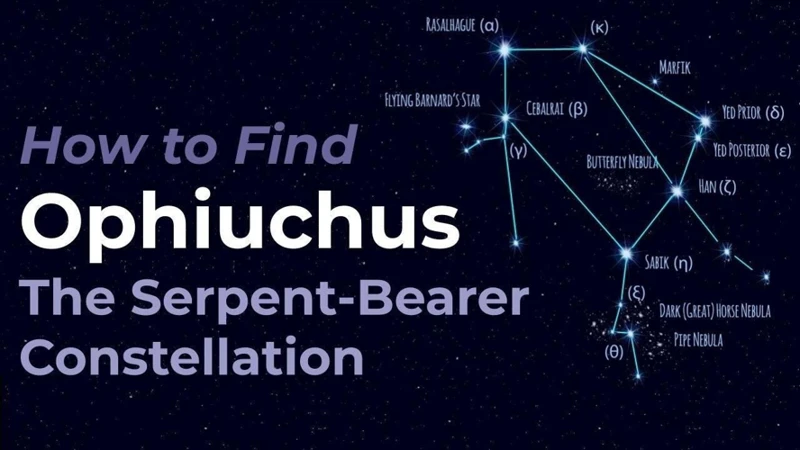
The concept of lucky numbers revolves around the belief that certain numbers hold special significance and bring good fortune to those who associate with them. People have been fascinated by numbers and their supposed power for centuries. Whether it’s a single digit or a combination of numbers, individuals often seek out these “lucky” numerical values to increase their chances of success or bring positive outcomes in various aspects of life. The origins of this belief can be traced back to ancient cultures that associated specific numbers with divine or supernatural forces. In modern times, lucky numbers have become ingrained in our society, influencing everything from lottery ticket purchases to the choice of wedding dates. While the idea of lucky numbers may seem mystical or unfounded, many people find comfort and meaning in ascribing personal significance to particular digits, whether based on cultural beliefs, personal experiences, or even guidance from numerology. Exploring the concept of lucky numbers can be both intriguing and perplexing, as it opens up a world of superstitions, cultural traditions, and personal belief systems. To delve deeper into this concept, it’s essential to examine how different societies and individuals across time and cultures have embraced the idea of lucky numbers, and to explore the scientific perspectives that attempt to explain their influence on our lives. So, let us embark on a journey to unravel the mysteries of lucky numbers and discover if there are indeed universal numerical values that hold sway over us all.
Historical Beliefs in Lucky Numbers
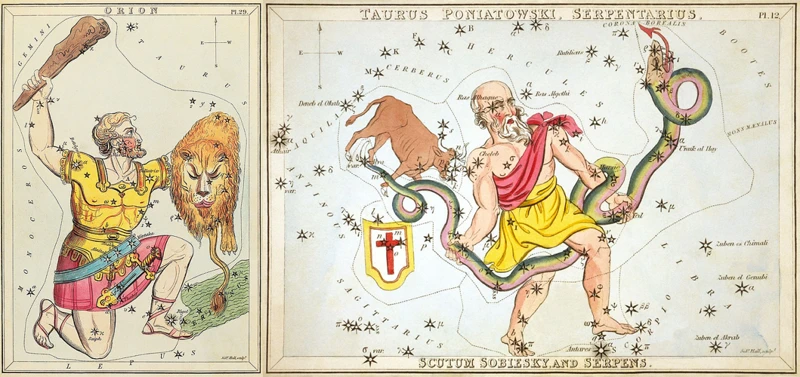
Throughout history, various cultures have embraced the belief in lucky numbers, attributing mystical or symbolic meanings to specific numerical values. Ancient civilizations such as the Egyptians, Chinese, and Greeks all had their own interpretations and associations with certain numbers. For example, in Egyptian mythology, the number 7 held great significance as it represented the seven planets known at the time. The Chinese culture considers the number 8 as extremely lucky due to its similarity in pronunciation to the word for “wealth” or “fortune.” In Greek mythology, the number 12 was highly regarded, with the twelve gods of Olympus and the twelve signs of the zodiac being significant references. These historical beliefs in lucky numbers reflect the cultural, religious, and philosophical influences that shaped societies’ outlook on luck and fortune. By exploring ancient mythologies and belief systems, we can gain a deeper understanding of how lucky numbers were intertwined in people’s daily lives and decision-making processes. To learn more about the connection between astronomical influences and ancient mythology, you can refer to our article on examining astronomical influences in ancient mythology.
Ancient Cultures and Lucky Numbers
Ancient cultures throughout history, spanning from the Egyptians to the Chinese, have attached great importance to lucky numbers. These numbers held significant symbolic and spiritual meanings, shaping their beliefs, rituals, and even daily life practices.
In ancient Egypt, numbers played a crucial role in their religious and mystical practices. The number 3, symbolizing the Holy Trinity of Osiris, Isis, and Horus, held immense importance. The number 7 represented the seven celestial bodies visible to the naked eye, while the number 9 symbolized completion and eternity.
In Chinese culture, numerology has been deeply ingrained for thousands of years. The number 8 is considered extremely auspicious because its pronunciation in Chinese is similar to that of wealth and prosperity. This belief is so strong that people often pay significant amounts of money to obtain phone numbers, license plates, or addresses containing multiple eights. On the other hand, the number 4 is considered unlucky as its pronunciation is similar to the word for death.
The Mayans, known for their advanced knowledge of mathematics and astronomy, believed that specific numbers held cosmic power. They assigned a sacred quality to the numbers 13 and 20, which were the basis for their elaborate calendars. The number 13 acted as a bridge between the heavens, the Earth, and the underworld, while 20 was seen as a symbol of completion and unity.
The ancient Greeks held the belief in the mystical power of the number 7. They considered it a symbol of perfection and completion, as demonstrated in the Seven Wonders of the Ancient World, the Seven Sages, and the seven days of the week.
These are just a few examples of how ancient cultures attributed significance to certain numbers. Each culture had its own unique interpretation and symbolism associated with lucky numbers, shaping their spiritual beliefs, rituals, and daily practices. By studying the traditions of these ancient civilizations, we can gain insight into the origins and diverse interpretations of lucky numbers that continue to influence our lives today. The connection between lucky numbers and ancient cultures is a fascinating exploration of humanity’s quest to find meaning and fortune within the realm of numbers and spirituality.
Lucky Numbers in Modern Times
In modern times, the belief in lucky numbers continues to hold sway over many aspects of daily life. From selecting lottery numbers to choosing phone numbers or license plates, people often rely on specific numerical combinations that they believe will bring good luck. These chosen numbers are often influenced by personal experiences or cultural superstitions. For example, the number 7 is widely considered lucky in many Western cultures, stemming from its significance in religious texts and ancient mythologies. It is often associated with good fortune, spirituality, and completeness. Another popular lucky number is 8, particularly in Chinese culture, where it is believed to symbolize wealth and prosperity. This is due to its similarity in pronunciation to the Chinese word meaning “wealth” or “fortune.” The number 9 is also considered lucky in Chinese culture, as it sounds like the word for “long-lasting” or “eternity,” and is associated with longevity and good luck. Additionally, some individuals may consider their birthdate or the birthdays of loved ones as lucky numbers. Others may find significance in repetitive or sequential numbers, such as 111, 222, or 1234, believing that they bring positive energies or synchronicities. While some may view these beliefs as mere superstitions, others find comfort in ascribing meaning and luck to specific numbers. In a world filled with uncertainty, the concept of lucky numbers can provide a sense of hope and positivity, serving as personal talismans or guiding forces in decision-making. The importance of lucky numbers in modern times reflects the enduring human fascination with numerology and the belief that numbers can influence our lives in profound ways. So, whether it’s a favorite number, a significant date, or a pattern that catches your eye, the quest for a lucky number in modern times remains a deeply personal and intriguing phenomenon.
Scientific Explanation for Lucky Numbers

The scientific explanation for the concept of lucky numbers takes us into the realms of psychology and mathematics. From a psychological perspective, it is believed that our perception of luck and the significance we attribute to certain numbers is strongly influenced by cognitive biases and conditioning. Our brains naturally seek patterns and connections, leading us to assign meaning to specific numbers based on personal experiences or cultural factors. Additionally, the confirmation bias plays a role, as we tend to remember instances where a particular number seemed “lucky” while discounting or forgetting instances where it did not. On the mathematical side, theories such as numerology attempt to assign characteristics and traits to numbers based on calculations and symbolic associations. Numerologists believe that each number holds a unique vibration or energy that can impact our lives. While these explanations provide some insight into the phenomenon of lucky numbers, they still leave room for personal interpretation and individual belief systems. So, whether you find credibility in the science behind lucky numbers or view them as purely subjective, the exploration of their origin and significance adds an intriguing layer to our understanding of human psychology and the complex relationship between numbers and the human experience.
Psychological Perspectives
Psychological perspectives provide valuable insights into the concept of lucky numbers, shedding light on why individuals believe in their significance and how they can impact our thoughts and behaviors. One explanation is rooted in the concept of cognitive biases. Humans, by nature, seek patterns and meaning in random or uncertain events, a phenomenon known as “patternicity.” This tendency to find significance in numbers stems from our innate desire for control and predictability in the world around us. When we attribute luck to certain numbers, it gives us a sense of agency and the belief that we can influence our outcomes. Additionally, our experiences and conditioning play a significant role in shaping our beliefs about lucky numbers. If a particular number has been associated with a positive event in our lives, we may develop a strong belief in its luckiness. This belief system can be reinforced through confirmation bias, where we selectively focus on instances where the number appeared to bring positive outcomes, while disregarding contradictory evidence. The psychological concept of self-fulfilling prophecy comes into play. When we believe in the luck of certain numbers, we may act in ways that increase our chances of success or interpret events in a way that confirms our beliefs. This can create a positive psychological state, leading to improved performance and greater confidence. Psychological perspectives offer a compelling explanation for why individuals hold strong beliefs in lucky numbers and how these beliefs can impact our thoughts and actions. However, it is important to note that these perspectives do not provide definitive evidence for the existence of universally lucky numbers, as individual psychology and cultural influences also play significant roles in shaping our beliefs.
Mathematical Theories
Mathematical theories provide another perspective on the concept of lucky numbers. Through the lens of mathematics, researchers have explored various numerical patterns and properties that may influence our perception of luck. One such theory is the Law of Large Numbers, which suggests that over a large sample size, certain numbers are bound to appear more frequently than others. This theory is often applied in gambling and statistical analysis to predict outcomes based on probability. Another mathematical concept relevant to lucky numbers is numerology, which assigns meaning to numbers based on their numerical value or the patterns formed by their digits. Numerologists believe that each number possesses unique vibrations and energy, which can influence a person’s life path and fortune. Numerological calculations, such as determining one’s life path number, can provide insights into an individual’s personality traits, strengths, and weaknesses. However, it is important to note that mathematical theories and numerology should be approached with a critical mindset. While they offer interesting perspectives, their validity and impact on luck are subjective and rely heavily on personal interpretation. Understanding the mathematical theories surrounding lucky numbers adds another layer of complexity to the concept, illustrating the diverse ways in which people seek to understand and harness the power of numbers in their lives. Whether you believe in the mathematical theories surrounding lucky numbers or not, they contribute to the fascinating tapestry of beliefs and practices surrounding this intriguing phenomenon.
Do Universal Lucky Numbers Exist?
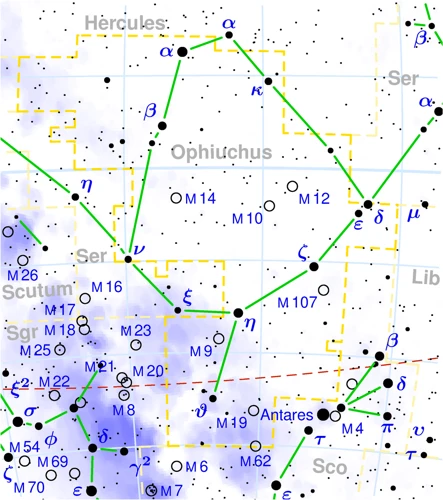
The question of whether universal lucky numbers exist is a complex and intriguing one. While many cultures and societies have shared beliefs about certain numbers being universally lucky, it is important to consider the diverse perspectives on this matter. Some argue that there are indeed common lucky numbers that hold significance across cultures, such as the number seven which is often associated with good fortune and spirituality. Others believe that luck is a deeply personal and subjective experience, with each individual having their own unique set of lucky numbers that resonate with them personally. The idea of universal lucky numbers also raises the question of whether luck itself can be defined and quantified. Is luck purely a matter of chance, or are there underlying factors that influence its presence in our lives? As we explore this topic further, we will delve into commonly shared beliefs about lucky numbers, as well as the notion of personalized luck. So, let’s examine the fascinating world of lucky numbers and unravel the enigma surrounding their existence.
Commonly shared beliefs about lucky numbers vary across different cultures and societies, but there are some recurring themes and patterns. One widely held belief is that the number 7 is universally lucky. This belief can be traced back to ancient civilizations such as the Greeks, who associated the number 7 with divine perfection and completeness. In Christianity, the number 7 is also considered sacred and symbolizes spiritual harmony and divine revelation. The number 8 is another commonly shared lucky number, especially in Chinese culture. The pronunciation of the number 8 in Chinese sounds similar to the word for ‘prosperity’ or ‘wealth,’ making it highly regarded for financial success. Additionally, the number 4 is considered unlucky in many Asian cultures, particularly in Chinese and Japanese traditions. This association stems from the similarity between the pronunciation of ‘four’ and the word for ‘death’ in these cultures, leading to a widespread superstition and aversion to the number. Other commonly shared beliefs in lucky numbers include the number 3, associated with good luck and harmony, and the number 9, which is linked to longevity and eternity. While these beliefs may not have a scientific basis, they have been ingrained in societal consciousness and shape people’s choices and behaviors. Whether it’s avoiding certain numbers or seeking out specific digits for luck, these commonly shared beliefs about lucky numbers add a layer of intrigue and fascination to our daily lives. So, while the concept of universal lucky numbers may not be concrete, the influence of these shared beliefs continues to play a role in how individuals perceive and interact with numbers in various cultures and societies.
Personalized Luck
Personalized luck refers to the belief that each person has their own unique set of lucky numbers that are specific to them. While some people may share commonly believed lucky numbers, many individuals believe that their luck is personalized and cannot be universally applied to others. This idea stems from the belief that luck is intrinsically tied to an individual’s unique life experiences, personality traits, and even astrological influences. For example, according to astrologers, the position of celestial bodies at the time of a person’s birth can determine their lucky numbers and overall fortune. Others believe that their lucky numbers are a reflection of their personality traits and characteristics. For instance, individuals who resonate with the qualities associated with the Ophiuchus zodiac sign may consider certain numbers as particularly lucky for them. The concept of personalized luck provides a sense of empowerment and individuality, as people believe they have a special connection to their own set of numbers. Whether it’s the belief in astrological influences or personal traits shaping lucky numbers, the idea of personalized luck highlights the diversity and uniqueness of each person’s experience with numbers and luck. So, while there may be common beliefs surrounding lucky numbers, it is ultimately the individual’s personal connection and belief in their personalized lucky numbers that holds the most significance.
Using Numerology to Find Your Lucky Number
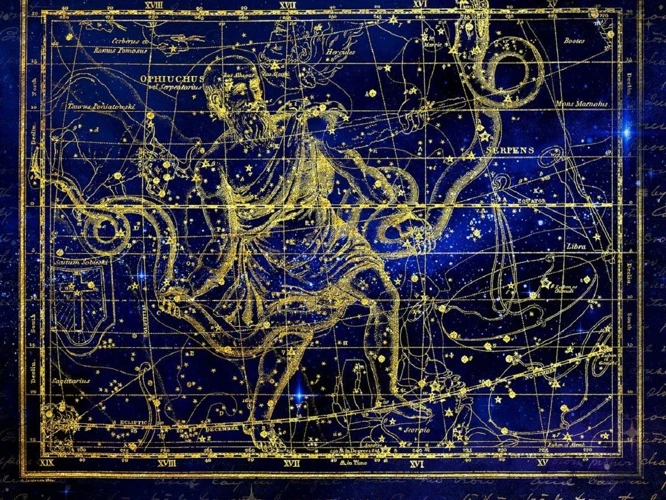
Using numerology to find your lucky number is a fascinating practice that involves assigning meaning to numbers based on their vibrational frequencies and their connection to various aspects of life. Numerology is an ancient belief system that suggests numbers hold symbolic significance and can provide insights into an individual’s personality traits, life path, and even potential future outcomes. To calculate your life path number, you add up the digits of your birthdate and reduce them to a single digit or a master number. This number is then interpreted to reveal your inherent strengths, weaknesses, and the energy that surrounds you. By understanding your life path number, you can gain a deeper understanding of yourself and make informed decisions in various areas of life. While numerology may not have scientific backing, many individuals find value in using numerological concepts to find their lucky number and apply it to their lives. It’s important to note that numerology is highly personal and subjective, and results may vary from person to person. If you’re curious about uncovering your lucky number through numerology, it’s always intriguing to explore this ancient art and discover what insights it may bring to your life.
Calculating Life Path Number
To calculate your Life Path Number, you need to follow a simple process that involves reducing your birth date to a single-digit number. This number is believed to provide insights into your personality traits, life purpose, and overall destiny. Let’s break down the steps:
1. Write down your complete birth date in the format: Month/Day/Year.
2. Break down each component of the date into individual digits. For example, if your birth date is May 15, 1985, you would have: Month (5), Day (1+5), Year (1+9+8+5).
3. Sum up the digits in each component. In this example, you would have: Month (5), Day (1+5 = 6), Year (1+9+8+5 = 23).
4. If any sum is a double-digit number, further break it down into a single-digit number. For the Year component in our example, you would have: 2+3 = 5.
5. Add together the reduced sums from each component. Continuing with our example: Month (5) + Day (6) + Year (5) = 16.
6. Finally, if the resulting sum is still a double-digit number, reduce it to a single-digit Life Path Number by adding its digits together. For our example: 1+6 = 7.
Congratulations! You have now calculated your Life Path Number! This number holds significant meaning and is considered to represent your unique life journey and personal traits. To delve deeper into the interpretation and significance of your Life Path Number, you can refer to various numerology resources or consult a professional numerologist.
The process of calculating your Life Path Number combines mathematical operations with the belief in the power of numbers to reveal aspects of your personality and life purpose. It is a fascinating practice that has captivated the interest of individuals seeking self-discovery and introspection. So, go ahead and explore the secrets hidden within your Life Path Number and gain valuable insights into your true self and life’s direction.
Interpreting the Results
Interpreting the results of your numerological calculations can provide valuable insights into your personality traits, strengths, and weaknesses. Each number in your Life Path Number carries its own symbolism and meaning. It is important to explore these interpretations to gain a deeper understanding of yourself and how you interact with the world around you. For example, if your Life Path Number is 1, you are seen as a natural-born leader with a strong sense of independence and ambition. This number signifies individuality, originality, and a drive to achieve success. On the other hand, if your Life Path Number is 9, you are characterized by compassion, selflessness, and a deep desire to make a difference in the world. This number represents spiritual enlightenment and the end of a cycle. By studying the interpretations of each number, you can gain a better understanding of your strengths and weaknesses, enabling you to navigate life with more self-awareness and purpose. It is important to remember that numerology should be seen as a tool for self-reflection and personal growth rather than a definitive guide. Embrace the insights provided by your lucky number and use them as a springboard to understand yourself better and make positive changes in your life. By exploring the interpretations of your numerological results, you can unlock a new level of self-discovery and personal development.
Personal Stories of Lucky Numbers

Personal stories of lucky numbers abound, showcasing the unique and often deeply personal connection individuals have with these numerical symbols. For many, lucky numbers become part of their identity, serving as talismans of good fortune and positive energy. These stories span various aspects of life, ranging from chance encounters to life-altering events. One person may recall how their lucky number guided them to the perfect job opportunity, while another might attribute their long-lasting relationship to the auspiciousness of a particular digit. These anecdotes highlight the power of belief and the human desire to find meaning and order in the seemingly random events of life. Some individuals base their choice of lucky numbers on personal experiences, such as the day they met their soulmate or the date of a significant achievement. Others inherit their lucky numbers from family traditions, passed down through generations. Each story offers a glimpse into the richness and diversity of human experiences with lucky numbers, showcasing how these numerical symbols can serve as sources of hope, inspiration, and serendipity. Regardless of the cultural or scientific explanations surrounding luck and numbers, personal stories remind us of the intangible and often unexplainable forces that shape our lives. So, whether it’s a cherished childhood memory or a fateful moment that changed the course of someone’s journey, personal stories of lucky numbers demonstrate the enduring allure of these symbolic digits in our everyday lives. It’s through these stories that we come to appreciate the profound impact that belief in lucky numbers can have on shaping our perceptions and experiences.
Conclusion

In conclusion, the concept of lucky numbers is deeply rooted in human fascination and the desire for fortune and positive outcomes in various aspects of life. While there are historical beliefs and cultural traditions surrounding certain numerical values, the idea that there are universal lucky numbers applicable to everyone remains largely unfounded. Lucky numbers often hold personal significance and meaning, influenced by individual experiences, cultural beliefs, and even guidance from numerology. The power of lucky numbers lies in the psychological and emotional effects they have on individuals, providing a sense of hope, confidence, and an increased belief in success. As we explored the historical and scientific perspectives, we found that while ancient cultures assigned divine or supernatural forces to specific numbers, modern scientific explanations are based more on psychological and mathematical theories. Numerology acts as a tool for individuals to find their own personal lucky numbers, using calculations such as the life path number to uncover insights and guidance. However, it is important to recognize that luck itself is a subjective concept, and personal achievements and outcomes are influenced by a multitude of factors beyond just numerical values. So, whether you believe in lucky numbers or not, it is ultimately our actions, choices, and mindset that shape our lives and determine our levels of success and happiness.
Frequently Asked Questions
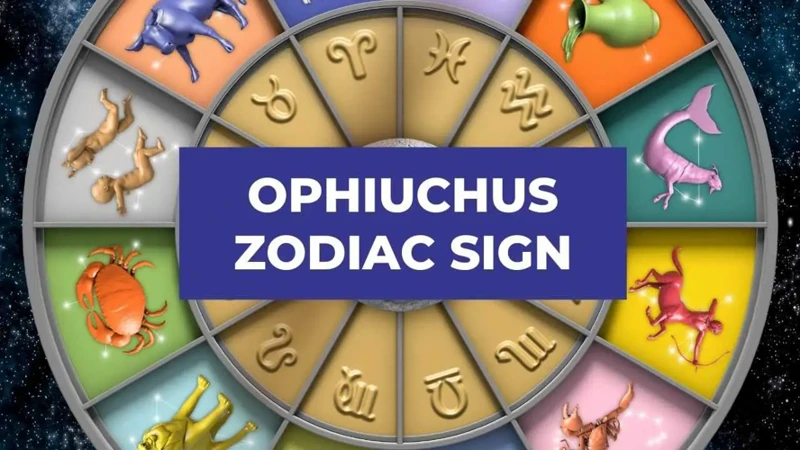
Why do people believe in lucky numbers?
People believe in lucky numbers because they provide a sense of hope, comfort, and control in a world filled with uncertainty. Whether it’s cultural tradition, personal experiences, or a belief in numerology, lucky numbers offer individuals a way to connect with something larger than themselves and believe in their own potential for good fortune.
Can lucky numbers actually influence outcomes?
There is no scientific evidence to suggest that lucky numbers can directly influence outcomes. However, the belief in lucky numbers can have a psychological effect on individuals, boosting their confidence and positive mindset, which may indirectly impact their actions and decision-making, thus potentially influencing outcomes.
Are lucky numbers the same across different cultures?
No, lucky numbers vary across different cultures. Each culture has its own unique set of beliefs and superstitions regarding numbers. For example, the number 7 is considered lucky in many Western cultures, while the number 8 is seen as lucky in Chinese culture.
Do lucky numbers change over time?
Yes, lucky numbers can change over time as beliefs and cultural interpretations evolve. In modern times, the rise of numerology and personal interpretations has also led to individuals assigning meaning to different numbers based on their own experiences and beliefs.
Can someone have multiple lucky numbers?
Yes, someone can have multiple lucky numbers. It is not uncommon for individuals to find significance in more than one number, based on different aspects of their lives or personal experiences. What may be lucky in love may not be lucky in financial matters, for example.
Does everyone have a specific lucky number?
Not everyone believes in or assigns significance to a specific lucky number. Beliefs in lucky numbers are subjective and vary from person to person. While some individuals may strongly resonate with a particular number, others may not attribute any special meaning to numbers at all.
Is there a difference between lucky numbers and lucky charms?
Yes, there is a difference between lucky numbers and lucky charms. Lucky numbers are numerical values associated with luck, while lucky charms are objects or symbols believed to bring good fortune. Some people may combine both practices by using a lucky number in conjunction with a lucky charm to maximize their chances of good luck.
Can lucky numbers bring bad luck?
While lucky numbers are generally associated with positive outcomes, some individuals may believe that if they rely solely on lucky numbers and disregard other factors, it may bring bad luck. It’s essential to maintain a balanced approach and not rely solely on luck when making important decisions.
What is the significance of repeating numbers?
Repeating numbers, such as 11:11 or 333, hold special significance for some individuals. They are often seen as messages or signs from the universe, guiding and affirming individuals on their path. However, the interpretation of repeating numbers can vary depending on personal beliefs and experiences.
Can someone change their lucky number?
Yes, someone can change their lucky number if they feel that a different number resonates more with them or their current life circumstances. The power of belief in lucky numbers lies in personal conviction, and individuals have the freedom to adapt and assign meaning to different numbers as they see fit.
References
- Universal Lucky Numbers 24, 33 & 51 Which one to use and …
- Are (Un)Lucky Numbers Universal?
- Lucky number
Frequently Asked Questions

1. Are there specific lucky numbers that have universal significance?
While there are certain numbers that are commonly considered lucky in various cultures, the concept of lucky numbers is largely subjective and differs from person to person.
2. Can lucky numbers bring good fortune to everyone?
The belief in lucky numbers is mainly based on personal superstitions and cultural traditions. Whether or not these numbers bring good fortune to everyone is highly individual and not scientifically proven.
3. Are lucky numbers based on any scientific explanations?
Scientifically, lucky numbers are often attributed to psychological perspectives and mathematical theories. However, these explanations are not universally accepted and are still under debate.
4. Do ancient cultures have specific lucky numbers?
Ancient cultures such as the Chinese, Egyptians, and Greeks had their own beliefs regarding lucky numbers. For example, the number 7 was considered lucky in many ancient civilizations.
5. How do modern societies view lucky numbers?
In modern times, lucky numbers are often seen as personal preferences. Some people may believe in lucky numbers, while others may not attach any significance to them.
6. Can everyone have personalized luck based on their own lucky numbers?
Personalized luck is subjective and varies from person to person. While some individuals may feel a special connection to certain numbers, others may not experience the same level of luck.
7. How can numerology help in determining one’s lucky number?
Numerology is a belief system that assigns numeric values to letters and uses these values to interpret personal characteristics and destiny. By calculating one’s life path number, numerology can suggest a potential lucky number.
8. What is a life path number?
A life path number in numerology is a single-digit number derived from a person’s birthdate. It is believed to reveal insights into their personality traits, strengths, and potential life path.
9. How can one interpret the results of their life path number calculation?
Interpreting the results of a life path number calculation involves understanding the characteristics associated with the calculated number. Different life path numbers are believed to have unique meanings and influences.
10. Do you have any interesting stories about lucky numbers?
While personal stories about lucky numbers are subjective and unique to individuals, there are many intriguing anecdotes where people attribute their success or fortunate experiences to specific numbers. These stories can add a touch of mystery and fascination to the concept of lucky numbers.






